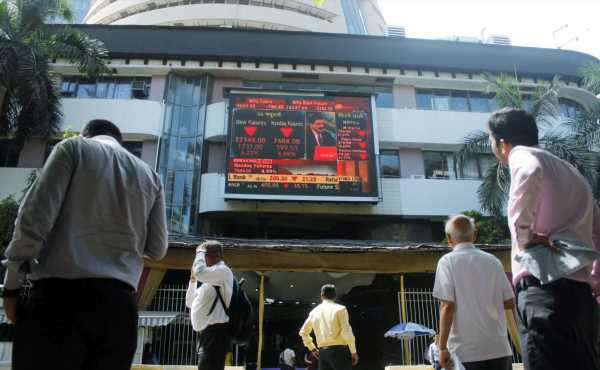‘There is a weak link between the economy and the stock market.’
The markets have been range-bound, waiting to assess economic damage caused by the second wave of Covid.
“By the second half, we expect to see global pent-up demand materialising and logistics constraints to materially ease. These, in turn, will certainly have a positive rub-off effect on the Indian economy and corporate earnings,” Jitendra Gohil, head-India equity research, Credit Suisse Wealth Management, tells Puneet Wadhwa.
Are there more triggers for a market correction now?
Our base-case scenario is that the number of cases in India peaked around mid-May and a recovery in the second half of this financial year, albeit slower than anticipated earlier.
There is a weak link between the economy and the stock market.
Larger listed companies that are linked to the global economic growth story, such as information technology, metals, chemicals, and pharma, are doing very well and are gaining market share from smaller players.
The next trigger for a sell-off can be if we go into a nationwide lockdown to curb the virus, but the probability of such a measure is still low.
Lawmakers most probably will take a middle path.
The markets will not wait for India to bring Covid fully under control but will pre-empt the recovery.
Our strategy is to buy the dips.
Will foreign flows into Indian equities slow down?
It depends on what happens to the dollar and US bond yields, and then all this percolates to relative country fundamentals.
As of now, US bond yields are likely to remain well-anchored below 2 per cent in 2021 and the dollar will not rally much.
We remain neutral on emerging market equities.
Within EMs, India disproportionately received higher FPI inflows over the past few quarters and hence, we do not rule out further profit-taking by foreign investors.
Your sector preferences…
We still recommend cyclicals over defensives. Large private sector banks will see good buying interest, but we have a neutral view on the auto sector.
That said, auto is an interesting sector to watch as the second half can see some ‘rubber band’ effect once the supply constraints ease and pent-up demand materialises.
Auto companies will have to take price hikes in the coming months and hopefully, by the festive season, the supply constraints will ease and price hikes will begin.
Can 2021 be a replay of 2020 when the pent-up demand gets released once the lockdown was lifted?
Yes, but the magnitude will differ. The last lockdown was very harsh, but the current lockdown is localised, and many activities are allowed.
We are also closely observing economies that are at the forefront of the vaccination drive.
The US and the UK have seen macro momentum returning sharply after their vaccination drives reached a larger scale, and now Europe is next in line where we see vaccinations picking up pace.
By the second half, we expect to see global pent-up demand materialising and logistics constraints to materially ease.
These, in turn, will certainly have a positive rub-off effect on the Indian economy and corporate earnings, as well.
Your view on corporate earnings?
Corporate earnings in the June quarter can be weak and we may see some downgrades.
Given the weak consumption environment, companies will not be able to pass higher raw material prices on to customers very quickly.
Nevertheless, taking a slightly longer-term perspective, we are basing our assumptions on FY23, where we think there is some headroom for surprises.
Large companies have gained market share and access to capital has improved.
Most reforms, infrastructure developments, and global growth will start reflecting in FY23 earnings, hence there is good possibility of further upgrades.
It is important to note that the current FY23 Nifty earnings per share estimates are even higher than pre-Covid levels.
What are the variables that investors need to watch?
Within India, hopefully, we will make good progress in terms of vaccinations, health care infrastructure, and immunity build-up by September.
This should help ‘reopen trades’ and support globally exposed cyclical companies.
Another aspect to keep in mind is the monsoon, which is expected to be normal this year.
Three consecutive normal monsoon seasons will be extremely positive for the farm sector.
Moreover, tax compliance is surprising positively, which is a good sign for government spending.
So, a normal monsoon should soothe inflation concerns…
The Reserve Bank of India may allow slightly higher inflation than its upper tolerance band of 6 per cent in the coming quarters and focus on growth.
Hence, moderately high inflation and lower interest rates can help earnings and stable valuation.
Our analysis suggests that equity valuations start to deteriorate when inflation starts to rise above 8 per cent, which is not our base case scenario.
Source: Read Full Article

